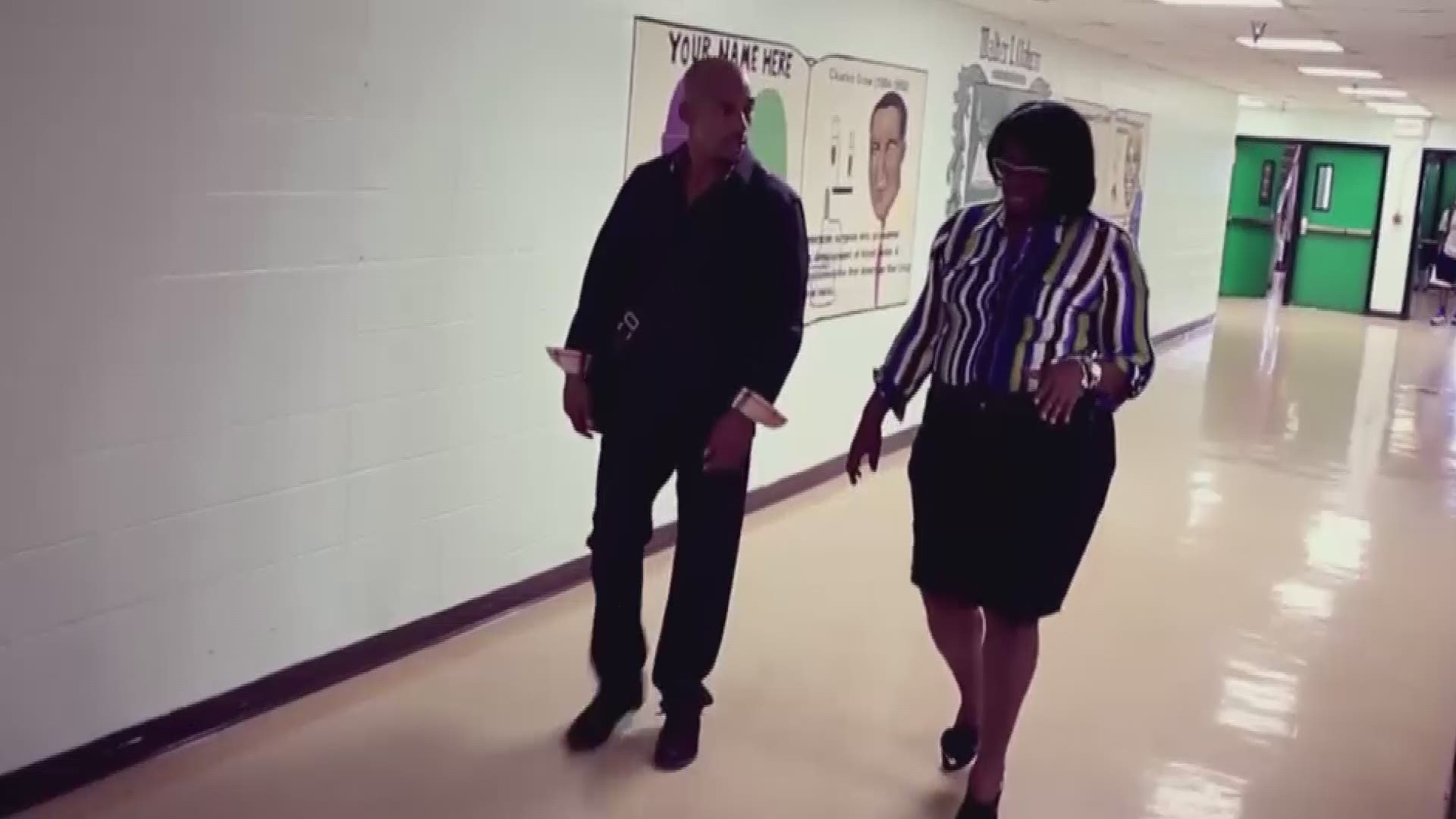NEW ORLEANS -- A New Orleans actor accomplished what many have been unable to do, go from a life of hard street crime to a prosperous one.
Now, he wants to keep other children from falling into the trap that got him into trouble. And he believes the answer is a simple school test.
Ameer Baraka's life started on the streets with crime and incarceration. In prison, he realized he and other inmates had something in common.
"Those men in prison can not read," Baraka said. "I've experienced it. I was there with them. We all pay people to write letters for us or to read letters for us."
In prison, he taught himself to read by memorizing what words looked like. Now, he's a model, a successful actor and producer and homeowner. But it wasn't until he was an adult that he discovered he has dyslexia.
"I was called stupid and dumb, particularly by my mother, my siblings. The teacher sort of just pacified me. I was laughed at by kids. I never passed the spelling test. I struggled with that," he remembers.
"I'll break it down, os-ten, ostentatious," he sounds out a word with his online teacher.
Now in his 40s, for 15 months, five days a week, an hour a day, Ameer takes an online class from the "NOW" company. Even though he can read and has written a book about turning his life around from the streets, he is learning the basics, even what comes before phonics and sounding words out.
"We know from research that children as young as five, six-months-old, begin learning how to speak by looking at their parents' mouths, and yet that's one of the skills that tends to be kind of weak in people that have dyslexia," explained Stephen Zedler, the Director of Outreach for the Neurodevelopment Of Words- NOW company.
Because of his dyslexia, Ameer crossed paths with Senator, Dr. Bill Cassidy and the school he and his wife, Dr. Laura Cassidy, opened in Baton Rouge for dyslexic children: Louisiana Key Academy.
"Got there, 55 percent black kids, struggling kids out of the projects. I said, 'Oh my God, you're doing phenomenal work.' And I just jumped on board with him," Baraka said, who admitted before he went there, he didn't think the school would be for needy children who grew up like he did.
That not only got him to testify to U.S. Senators on Capitol Hill about the impact undiagnosed dyslexia had on his life, but he started a foundation to keep others from his same fate.
"Forty percent of the dyslexics drop out of school. So what we're creating in this country, is the streets to prison pipeline, because when they drop out of school, just like I did, they get into trouble," he said.
On Oct. 2, in conjunction with other groups, schools around the U.S. will screen at risk kindergartners through second graders for dyslexia.
"I can't even explain the enormous success a kid can have when you have that early intervention, those early screens, and those early signs," said Dr. Stanley Green, Principal of Sylvanie Williams College Prep.
He's been an educator for two decades and has seen the prison time and lives of dropouts cut short.
"Trying to save as many as possible, as early as possible is the goal of an educator, especially my goal, because I've seen that side when we don't save them, when they've fallen through the cracks," Dr. Green said.
"My reading has soared," said Baraka about taking the online class. "I no longer have to go to the dictionary to find out what the word is. I could break the word down. What seemed to be something that was going to destroy my life, is something now, is being used to help others."
To donate to the foundation or get more on October 2 testing day visit http://kingbaraka.com/dyslexia-diagnosis-day/
For more on the Senator Cassidy Dyslexia School in Baton Rouge, visit http://lakeyacademy.com/
For more on the Neurodevelopment Of Words (NOW program), visit: http://www.nowprograms.com/

